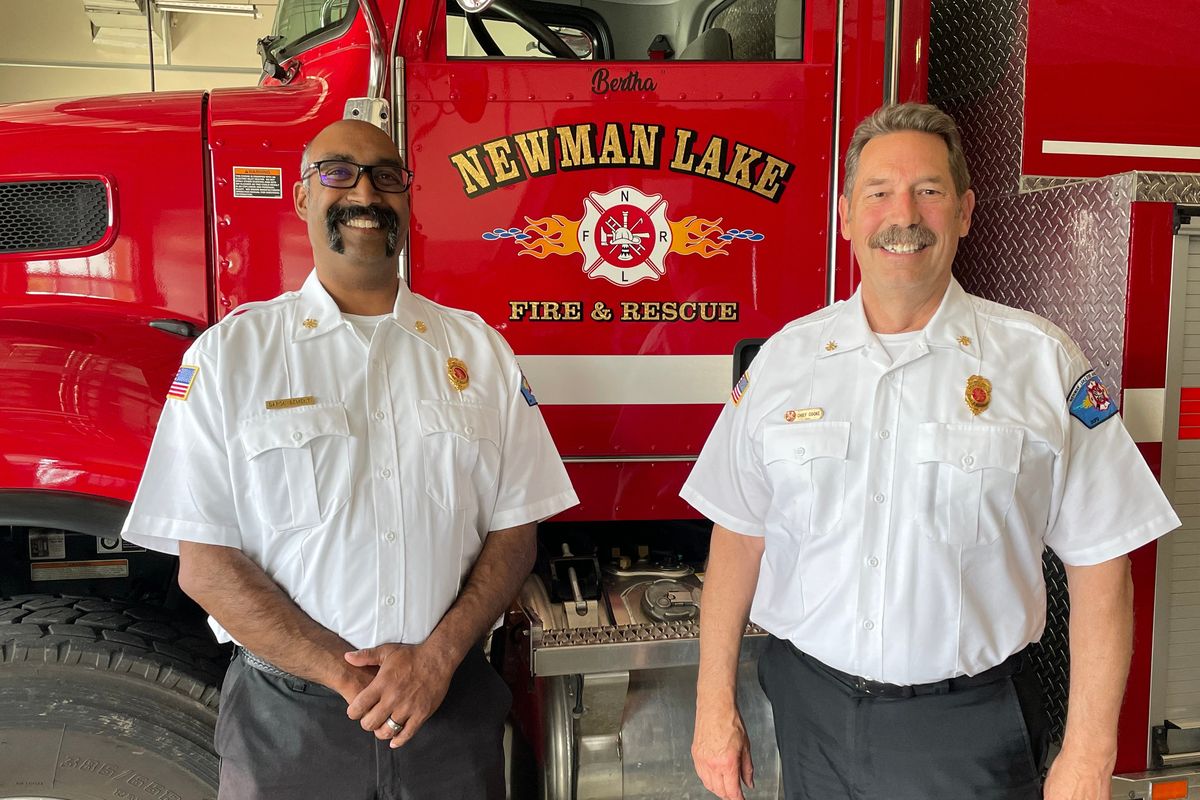After voters reject another levy, chief suggests district may need to sell a fire truck or shutter a station

Newman Lake Fire and Rescue’s second levy lid lift attempt this year failed at the ballot box this month, which may result in severe cuts that could include closing one of its two fire stations, ending a popular volunteer program and selling a fire truck.
As of Friday, the measure was failing with a 59% “no” vote.
Fire Chief Daron Bement said he’s at a loss.
“We could have used the support of the community,” he said. “We got less support than last time and we were asking for less.”
The fire district is staffed almost completely by volunteers and has three paid staff members. In recent years the number of volunteers had fallen steadily and only a handful had the training required to actively fight a fire. Two years ago the department started a new volunteer program that pulled in out-of-district volunteers to sign up for shifts at Station 1.
The program has been successful and people consistently call the station to express interest in the program, Bement said. It’s been particularly successful at providing coverage during the day, when most community volunteers are at work.
“A lot of people work their jobs so they’re not available during daytime hours, which is when the majority of incidents occur,” Bement said.
While the volunteers are not paid, the district does have to provide them with equipment and training, Bement said.
Fire districts are allowed to ask for up to $1.50 per $1,000 in assessed home value to pay for basic services. Districts are only allowed to raise the amount they collect by 1% per year, which is usually far below inflation. As a result, the amount per $1,000 collected drops over time, so usually fire districts periodically ask voters to approve levy lid lifts, which allow them to collect the full $1.50 again.
Newman Lake Fire and Rescue, which also is called Spokane County Fire District 13, currently receives 78 cents per $1,000 in assessed home value. The last levy lid lift approved by voters to the full $1.50 per $1,000 was in 2015.
On the November ballot, the district was asking voters to approve a levy lid lift to $1.30 per $1,000, which is less than the maximum allowed. The measure would also have allowed the district to raise that amount by up to 6% per year through 2028. Bement said he thinks that part of the request confused people, who thought the district would take the full 6% each year. The district only would have taken what it needed to maintain its budget and level of service and still would be required to stay below the $1.50 per $1,000 cap, he said.
“They were really confused on that,” Bement said. “We did our best to explain that.”
The district collected just over $540,000 from the levy this year and anticipates receiving an estimated $549,000 next year. But the tiny increase won’t cover the rising costs of fuel, equipment and supplies, which have risen sharply in the past two years.
The district already has approved reductions in its 2024 budget, mostly to internal items like training. This issue is that the district has virtually no fat to trim and any cuts come directly from services, Bement said. “We’ve made a lot of sacrifices in order to maintain personnel,” he said. “From the outside looking in, you wouldn’t see the cuts.”
But if there are any unexpected costs next year, such as if a truck breaks down, there’s nothing left to pay for it and drastic measures would have to be taken, Bement said, up to and including selling a fire truck.
“It is all on the table,” he said.
But even if there isn’t an emergency, the loss of funding will be clearly visible in 2025, Bement said. That’s when even more drastic cuts will have to take place, including the successful volunteer staffing program and possibly shuttering Station 2.
“We can say with 100% certainty that it will be detrimental by 2025,” he said. “Losing 75% of our workforce is detrimental to public safety.”
The district hasn’t decided how to move forward, Bement said. The commissioners will meet to discuss the budget, cost reduction options and whether to try the levy again next year. Bement said he realizes that no one wants to pay higher taxes, but something must be done to save the district.
“People don’t realize the gravity of the situation,” he said.